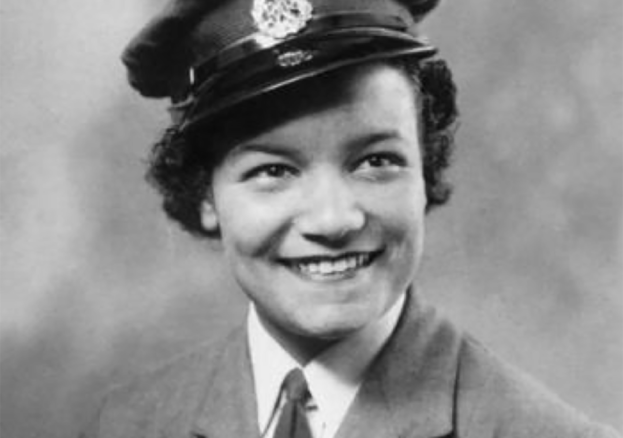
Marrying in 1913, Marcus Bailey was a Barbadian born migrant who found himself in England, coupled with an English born, Irish raised woman* on the outbreak of war. The possibility of a happy family was postponed as war broke out in 1914 and Marcus would find himself serving in the Royal Navy as a Merchant Seaman until the war finished.
However, upon the wars end, the Baileys would parent three children, one of which would be Lilian Bader. Born in 1918, she would go onto be quite possibly the first Black woman to join the British Armed Forces.
The influence of Lilian’s father in her decision to join the Armed Forces is questionable as Lilian and her two older brothers would be orphaned when she was nine years old due to an unknown incident.
Now without parents, the trio would be separated and Lilian would have to battle her personal losses with racial prejudice at a young age. Despite her struggles, Lilian would go on to be a class leading student and popular friend, setting herself up for a bright future in any career she could want.
The reality of being a Mixed Raced Woman, in Britain in the early 1930’s, would be one her intelligence and popularity would never be able to escape and at the age of twenty, Lilian would still be at the Convent she joined as a nine year old, simply because nobody was willing to hire her for work.
However, the outbreak of World War Two in 1939 would be a surprisingly positive point for Lilian who now found herself accepted as a Canteen Assistant at NAAFI, Catterick Camp and away from the convent for the first time.
It took only seven weeks for Lilian to be disappointed, as she was sacked from her role due to the fact her father was born outside of the UK.
The story is, is that the District Manager had toyed with the decision for several weeks, sympathizing with Lilian’s Irish and Roman Catholic backgrounds as he himself was Irish and Roman Catholic.
Determined not to let her background be a stumbling block, Lilian found work again in January 1940. Now working on a farm near RAF Topcliffe, Lilian was once again feeding soldiers who ventured outside of the base.
She would leave the farm voluntarily and would take up the role of a domestic servant until 1941, where a chance to join the army once again surfaced.
“I heard some West Indians being interviewed on the radio… They’d been turned down by the Army and accepted by the RAF.”
Lilian was accepted into the Women’s Auxiliary Air Force on 28th March, 1941 and was sent to York. Yet turmoil was to strike once more for Lilian and two weeks into her training, her Brother would be lost at sea whilst serving as a Merchant Seaman, just like their father.
Returning from compassionate leave, Lilian embarked on a twelve-week training course, qualifying her as an Instrument repairer; a relatively new job that had been made available to women in 1940.
Her academic prowess and personable nature once again shone through and after passing several exams, Lilian graduated as a First Class Airwoman and was soon in Shropshire where her skills saw her being promoted to Corporal and leading Aircraftwoman.
The true influence of Lilian and her crew is difficult to fathom. As servicewomen, their role may have been limited to running routine repairs and replacing sensitive equipment. However, the simplicity of their work does not negate its importance. Furthermore, the sheer scale of the work these women undertook was of a magnitude many would have found reason not to enjoy. It is because of their importance and well-documented professionalism that I could consider Lilian Bader for our ‘Community Heroes’ section, but as her achievement is something worth of note, Lilian Bader fits well within our ‘BHM Firsts’ – no question.
Lilian would go onto marry another mixed raced serviceman, Ramsay Bader in 1943 and in 1944; would be granted compassionate leave as she left to start a family with the Tank driver.
Lilian Bader’s achievements do not stop once she left the army. Now a mother of two children, she sought it necessary to go back to school, achieving the necessary ‘O’ and ‘A’ levels to secure a degree at University of London; a degree that would let her go onto be a teacher.
Lilian Bader passed away earlier this year at the age of 97.
Special thanks to the Ministry of Defence.
*Lilian did not remember her mothers name due to the nature of her passing whilst Lilian and her Brothers were so young. As such, her mothers name has not been openly documented.
